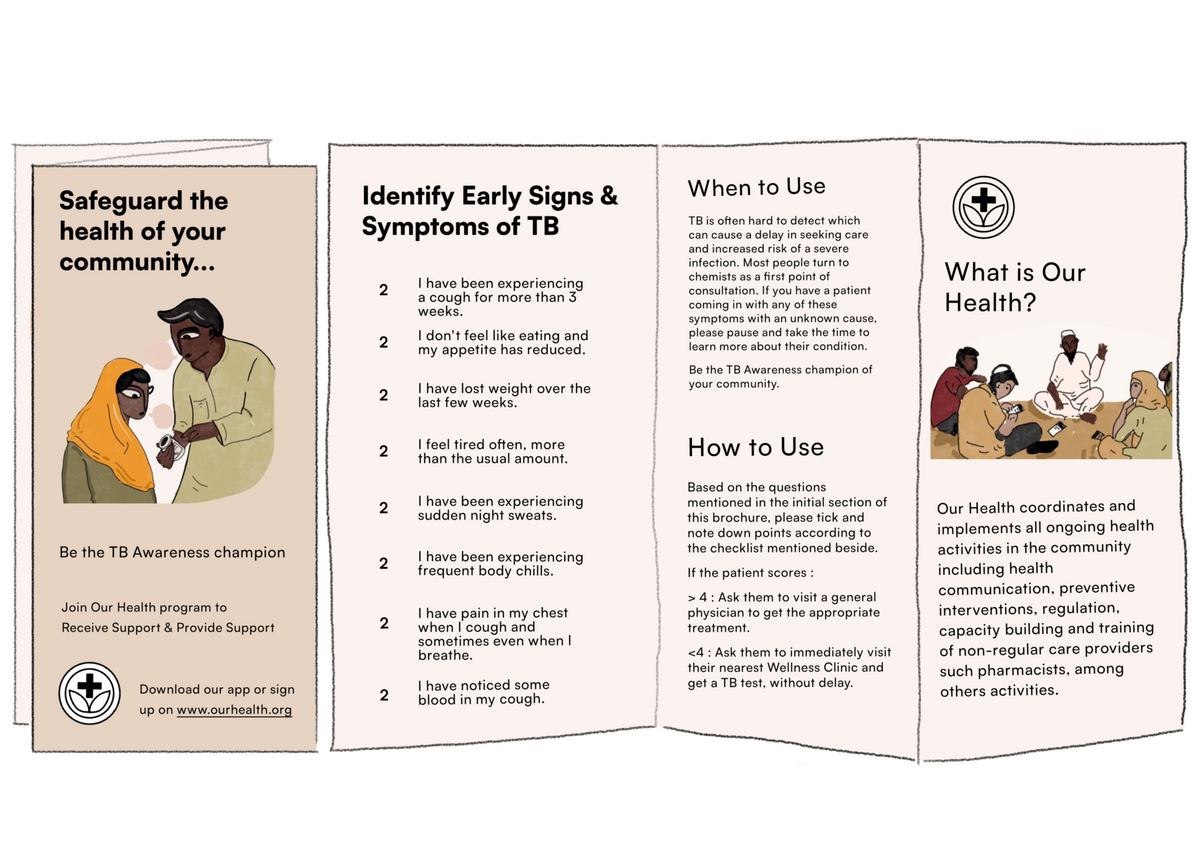TB Early Identifier

The TB Early Identifier helps a trained chemist spot early symptoms of TB. Pharmacists are trained and supported with technology, including digital checklists of common symptoms that are updated by an upstream actor such as a state level health authority. A referral slip is provided by the pharmacists to help make the care journey at the Wellness Clinic more efficient for both patients and providers.
Today, many stakeholders in global health already recognise this crucial role of pharmacists, especially in rural and poor communities, where they often serve as a starting point for health journeys. Being from the community, they tend to have natural empathy towards other health seekers. Many patients are guided by pharmacists in discovering the right avenues of care. With a growing recognition that pharmacists have historically been underutilized by public health systems, a number of interventions are being designed and implemented to enhance and expand their role.
In the Future, pharmacists may be universally recognised and utilized by public health systems as a crucial node in the care network in communities, especially marginalized ones. Digital technologies may become force multipliers by providing critical tools to pharmacists, while also building their capacity with remote learning.
However, a number of challenges need to be addressed before pharmacists are universally recognised and utilized by public health systems. These include:
If the role of pharmacists is expanded and to some degree formally recognised, it will become even more crucial to ensure that their advice to health seekers remain within the narrow remit assigned to them by public health experts. Monitoring and regulation needed for this will likely be cumbersome and expensive.
Capacity building and scaling strategies for these efforts will likely be a large cost burden. In some LMIC contexts, already stretched public health systems may find it hard to justify large investments in capacity building and tech enablement of pharmacists.
To more formally integrate pharmacists into public health systems, it is critical to ensure cooperation and collaboration of other stakeholders in the system as well. This has proven difficult as doctors and other medical experts have often resisted expanding the role of pharmacists.
A more formal integration of pharmacists into public health systems will require support from regulatory bodies, health ministries, local officials, medical professionals & facilities and ultimately the pharmacists themselves. While these factors come together in many cases where pharmacy based interventions have been successful, ensuring that they universally dovetail into an effective, well regulated and integral part of health systems remains challenging.
Framing opportunities is an early step towards addressing these challenges.
-
How might we motivate pharmacists to see themselves as a part of a broader health system?
-
How might we build trust and partnership between pharmacists and medical professionals?
-
How might we use digital technologies to reduce the cost of capacity building among pharmacists?
-
How might we bring in private investment into the capacity building of pharmacists?
-
How might we imagine a support system for pharmacists that also acts as an oversight mechanism?
-
How might we imagine a community of practice among pharmacists?